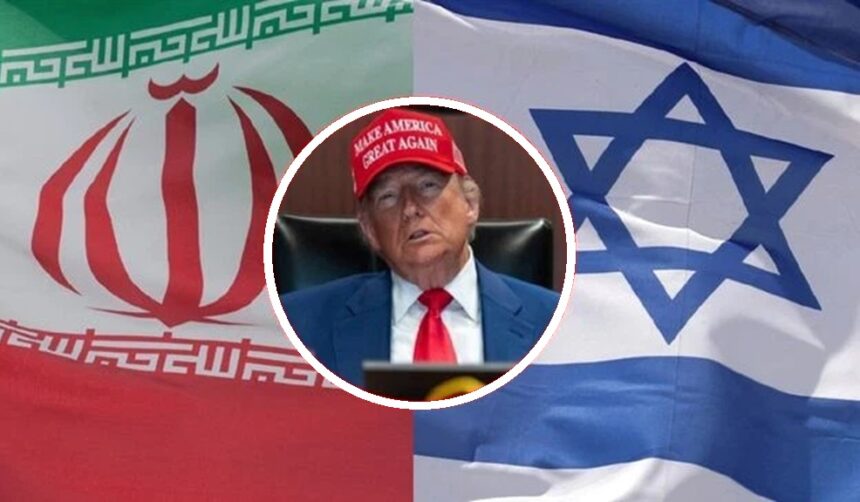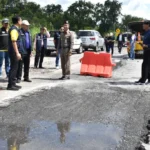WASHINGTON D.C. – US President Donald Trump announced a “complete and total” ceasefire between Israel and Iran on Monday evening. This came just hours after Iran fired missiles at the US Al Udeid Air Base in Qatar.
Trump made his announcement on Truth Social, following a weekend of US airstrikes against Iran’s nuclear sites. These attacks marked a sharp rise in fighting that has unsettled the Middle East for nearly two weeks.
As Doha and Tehran settle after the latest clashes, many in the region wait for official confirmation from both Israeli and Iranian leaders to see if this truce will stop what Trump has called “The 12 Day War”.
The ceasefire news came after a rapid escalation of military action. On June 13, Israel launched airstrikes aimed at Iran’s nuclear programme and missile sites. The campaign included bombing Evin prison in Tehran, aiming to weaken Iran’s leadership and disrupt its nuclear plans.
On Sunday, June 22, the US joined in, sending B-2 bombers and submarines to deliver 14 “bunker buster” bombs and over 20 Tomahawk cruise missiles to three major Iranian nuclear sites: Fordow, Natanz and Isfahan.
President Trump called the strikes, which he named “Operation Midnight Hammer”, a “spectacular military success”, claiming Iran’s nuclear programme was “completely and totally obliterated”. Yet US officials warned that full damage reports were not ready, with uncertainty still surrounding Iran’s stores of enriched uranium.
Rafael Grossi, director of the International Atomic Energy Agency, told the UN Security Council that checking damage at underground sites like Fordow would be difficult, and reminded the council that attacks on nuclear facilities should never happen.
Iran’s response came quickly. On Monday, June 23, Tehran fired 19 ballistic missiles at Al Udeid Air Base, the largest US base in the Middle East, just outside Doha. Iran said the number of missiles matched the number of bombs used by the US in its strike.
US and Qatari officials described Iran’s attack as mostly symbolic, with no injuries reported. Qatar’s defences shot down nearly all of the missiles, with one landing on the base causing only minor damage. Iran’s Supreme National Security Council said the attack aimed to avoid civilian areas, calling Qatar a “friendly and brotherly country”.
After the attack, Qatar temporarily closed its airspace, which disrupted flights and led the US Embassy to tell Americans to stay indoors. Trump thanked Iran for giving a warning about the missile launch, calling it a “very weak response” that the US “very effectively countered”.
This was a shift from his earlier warnings of overwhelming force if Iran retaliated.
Ceasefire Announcement: A Lasting Solution or a Brief Lull?
Trump shared details of the ceasefire on Truth Social around 6:00 p.m. ET on Monday, describing a step-by-step plan to end hostilities. He explained that both Israel and Iran had agreed to a 12-hour ceasefire, after which the conflict would be considered over.
Both sides would have time to finish their current military actions before the truce began. The pause starts early Tuesday, with Iran stopping attacks first for 12 hours, then Israel, ending with an official stop after 24 hours.
This agreement reportedly came after Qatar’s Prime Minister Sheikh Mohammed bin Abdulrahman Al Thani helped broker talks. Sources say Trump spoke directly with Israeli Prime Minister Benjamin Netanyahu and Qatar’s Emir Tamim bin Hamad Al Thani to finalise the plan. A senior Iranian official confirmed Tehran’s agreement to the truce in a call with Qatari leaders after the strike on Al Udeid.
Still, neither Israel nor Iran has formally confirmed the ceasefire. Iranian state media called Trump’s news a “claim”, and Tehran’s leaders made no official statement. Israel stayed silent as well, with its military continuing strikes on Iranian sites linked to its religious leadership. Al Jazeera’s Tehran correspondent, Tohid Asadi, noted that it remains uncertain if Iran’s missile attack on Al Udeid is the end of its response.
Regional and International Response
The ceasefire announcement drew mixed reactions across the Middle East. In Doha, where missile trails and explosions lit up the sky on Monday night, Qatar’s Foreign Ministry condemned Iran’s attack as a clear breach of its sovereignty. Still, Qatar’s work as a mediator highlights its careful relationship with both Iran and the US. With US support, Qatar’s missile defences kept damage to a minimum, and the country’s airspace reopened soon after.
In Tehran, the mood was one of defiance mixed with caution. Iran’s Supreme Leader, Ayatollah Ali Khamenei, said, “We will not surrender” after the attack on Al Udeid, but Iran’s limited response and the warning to the US and Qatar showed an attempt to avoid further escalation. Former US Defence Secretary Leon Panetta argued that Iran’s “restrained response” suggests its ability to strike back has been weakened, hinting at a possible willingness to de-escalate.
Global oil markets reacted fast. Crude prices fell 7% on Monday, with West Texas Intermediate dropping to $68.51, as traders hoped Iran’s actions would not disrupt world oil supplies. Prices slid further after Trump’s ceasefire announcement, as the market anticipated a break in fighting.
International leaders offered support but remained cautious. French President Emmanuel Macron called for peace, and Kuwait’s Foreign Ministry urged the UN Security Council to help stop further military actions. But doubts remain. US Senator Bernie Sanders compared the strikes on Iran to the 2003 Iraq war, warning against repeating old mistakes.
Looking Ahead: Lasting Peace or Temporary Truce?
With the ceasefire about to begin, doubts linger about how long it will last. Trump’s upbeat message, echoed by Vice President JD Vance and Director of National Intelligence Tulsi Gabbard, described the truce as a “historic” step towards a long-term settlement.
Vance said the conflict was an “important reset moment” for the region, while Gabbard praised Trump’s role in the deal. Yet Trump’s earlier comments about regime change in Iran, later played down by the White House, have fuelled suspicion in Tehran.
The US strikes were damaging but did not destroy Iran’s nuclear abilities, especially at underground sites like Fordow. Israel’s continued attacks on important and military targets add more uncertainty. The lack of official confirmation from both Israel and Iran raises questions about whether the ceasefire will last beyond the first 24 hours.
For people across the Middle East, from those in Tehran worn down by war to anxious families in Doha, the ceasefire brings a small sense of hope in uncertain times. As the echoes of explosions still fade over Qatar, the region faces a choice. Will Trump’s push for a truce lead to lasting calm, or is this just a short break before more fighting? Only the next days, and the actions of Israel, Iran and their allies, will provide an answer.
Sources: AP, Reuters, Al Jazeera














